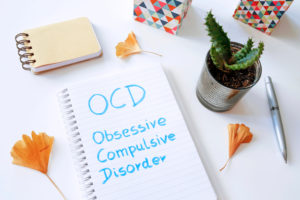
At Newcastle Psychologist & Counselling, we specialise in being able to provide the best therapist for your problem. We also know that every client is totally individual.
While therapies like CBT or counselling are widely effective and widely known, for some people, combining these therapies with other approaches can be beneficial in helping you overcome your problems.
Some of our psychologists, counsellors and therapists also specialise in other therapies which might be lesser-known but are brilliantly effective for their target problem (as proven by research and our own experience).
If you’ve found the more common methods of therapy haven’t worked or don’t have lasting power for you, it might be worth considering whether the following could help you further.
Eye Movement Desensitisation and Reprocessing (EMDR) in Newcastle
We offer EMDR in Newcastle to those who have experienced traumas in their lives and is particularly effective for those experiencing PTSD.
EMDR is thought to work via the concept of “bilateral stimulation” of the brain and takes advantage of the way the brain can (re)process memories and experiences. EMDR techniques include hand tapping, encouraged patterns of eye movements, and audio stimulation to enable you to process past events that were previously too overwhelming due to their emotional weight.
Though initially developed as a way of helping trauma, it has been successfully applied to problems such as anxiety, low self-esteem and loss.
Mindfulness Meditation in Newcastle
Mindfulness Meditation is an effective approach for helping people experiencing a range of difficulties such as managing depression, anxiety, anger, chronic pain, and stress among others. Mindfulness and meditation developed some popularity in helping people become more “present” and to “live in the moment”, though in reality, its application to helping people manage their problems goes far beyond this.
Mindfulness can help you to become aware of difficult thoughts and feelings in real-time, as well as creating self-awareness of your thoughts, feelings, and behaviours day-to-day. In this way, it enables you to start making choices rather than living on “autopilot” with your feelings running away from you.
Mindfulness has been shown to be helpful for those experiencing chronic conditions through helping them to learn to reduce their pain sensation thereby reducing the impact of physical pain. It has also been shown to be helpful in supporting people undergoing cancer treatment and in improving their mental health.
Cognitive Behavioural Therapy for Insomnia (CBT-I) in Newcastle
CBT-I is a specialist form of CBT designed exclusively to help with disrupted sleep, particularly insomnia, nightmares and early waking. It differs from traditional CBT in that it focuses specifically on the factors that affect sleep and how to overcome them.
CBT-I looks directly at the causes of your sleep problem, which can include unhelpful night-time behaviours, suboptimal bedtimes, problematic sleep environment, stress/worry, or poor sleep hygiene among other things.
This therapy has proven effective in those that have been suffering insomnia in both the short and long term and has helped many people come off sleeping medication.
Dr Stuart Sadler (Chartered Clinical Psychologist) is one of the few UK based therapists trained and experienced in this specialist form of therapy and offers both face-to-face and online CBT-I at our sleep clinic in Newcastle.
Other Sources of Help
This is by no means a full list of our therapies and information about other therapies is available by visiting our main website. All of our therapists are fully trained and experienced in the specialist therapies they offer.
If you think that counselling or therapy might be able to help you overcome your difficulties, or you have a question about any of our therapies, send us a message using the form below contact us on 07966 645 198.

Best wishes,
Dr Stuart Sadler
Lead Clinical Psychologist




